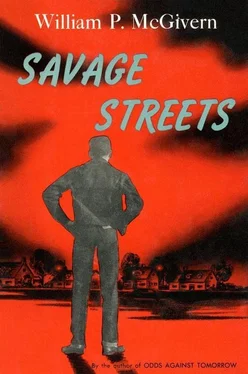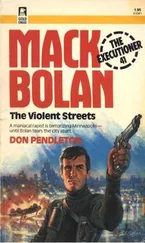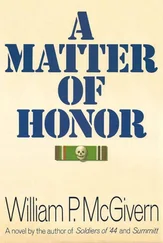“Well, I’d like to very much but my schedule is pretty tight. I’m supposed to be in Chicago tomorrow.”
“I shouldn’t be trying to pressure you this way. If you could call Dad later that would be wonderful.”
“Well, actually, I could probably make it all right,” he had said. That hadn’t been the truth; he was due in Chicago the next day to see an advertising agency about a job, and changing his plans meant giving up what in those days had been a very precious plane ticket. But he had not been able to resist the wistfulness in her voice.
The afternoon he met Barbara for the first time had been in 1945. She was waiting for him when he got off the train in Westchester, Pennsylvania, a slim, twenty-year-old girl in a blue tweed coat, a rather plain girl (he had thought then) with a smooth forehead, gravely dark eyes and brown hair cropped close to her small head. On the drive to her father’s farm they had talked of gas rationing (the Walkers had been lucky; they had had an agricultural quota) and the beauty of the countryside, the purples and reds and yellows of the dying season. “This is what I missed,” he remembered that he said to her. “This kind of an American fall. These colors.”
“Not hot dogs and the chance to boo the umpire?” She had turned her head to smile tentatively at him, and he saw that she wasn’t so plain after all. Some women were only beautiful in repose, he had learned; but there were women with a more exciting kind of beauty, with faces that came alive with the business of living. She was that sort.
“I guess I was an odd-ball,” he had said. The fields of late fall stretched away from the road like a calmly rolling sea, and a stand of trees on a low hill looked as if a fire were raging through their branches.
They spoke little after that, but the silence was comfortable. At a traffic light he had lighted a cigarette for her and she had taken it from him with the scrubbed hand of a child, thin brown fingers and rosy unpainted fingernails. That’s what she had reminded him of then, with her spindly legs and slender body, a child with sad eyes.
The Walker home was old and sturdy, with fieldstone walls and narrow windows. Leaves were falling that afternoon, he remembered, twisting slowly through the cold blue air and settling with whispering sounds on the hardening ground.
Mr. Walker was tall and handsome with dark eyes and prematurely gray hair. He did not look like a dairy farmer; with his pink cheeks and light hair he looked more like a college senior made up to portray a character in a class play.
Dinner was served after several rounds of cocktails, and by the time they returned to the living room Mr. Walker was drunk in a casual, affable fashion. Barbara left them alone and they sat before the fireplace with flames from the apple-log fire shining brightly on the dark beams above their heads. Mr. Walker brought a bottle of cognac and two brandy snifters from the sideboard and said, “I think we might drink this to my son, David, Lieutenant.”
Then Mr. Walker poured himself another brandy and said, “I would appreciate anything you can tell me about David’s death, Lieutenant — anything, that is, which won’t give you pain.”
Farrell described young David Walker’s death. It had been a routine death, if any death under fire could be called routine, but Mr. Walker had obviously been gratified by his account. He had stirred himself with an effort to pour a drink. “I’m most grateful to you. You have given me great solace,” he had said.
A little later Mr. Walker was asleep and Farrell was wondering uneasily if he should try to get him to bed. But Barbara returned then, and this was when he had first seen the tense little frown on her forehead. She hadn’t apologized for her father. She had said, “I’ll take care of him, please don’t worry. I know your talk has done him a lot of good.”
“There wasn’t much I could tell him. David died well — that was all I could say.”
“I hate talk about soldiers dying well or not dying well,” she had said in a low voice. “They’re gone — we should just remember that.”
“I’m sorry,” he said.
“Please don’t be. I shouldn’t have said that. Not to you. And I am glad you talked to Dad. He needs heroes. Mother was his first and greatest, and now he has Dave.”
“And how about you?”
She had smiled, but it hadn’t erased the crease of worry in her forehead. “I’m not heroic, not the least bit.”
He said awkwardly, “Can I help with him?”
“No, I’ll manage all right. This doesn’t happen every night. But when he learned that David had been killed he just couldn’t...” She sighed faintly. “I suppose if you were charitable enough you could call Dad a war casualty, too.”
He had been very moved by her then. “The hell you’re not heroic,” he said. “The hell you’re not.”
When he left the next morning Farrell’s impression of Barbara had been neither sentimental nor romantic; what had remained with him was the simple fact that she had been putting her handsome, well-mannered father to bed for years without resentment or shame, knowing it was a problem she could never solve but facing it nonetheless with dignity and compassion.
Farrell sat up and glanced again at the bedside clock. It was ten of seven, which was almost his deadline. He smiled as he began unbuttoning his shirt. Put her father to bed for years. Hardly a dainty recollection to carry away from the first meeting with his future wife. But most people, he felt, were in the habit of summing up one another in a sentence or two, and usually these capsule estimates lacked any hint of grace or dignity. Do you know so-and-so? You mean the guy whose wife ran off with the bridge teacher? That’s the one. So much for so-and-so, his dreams and yearnings, his conviction that he was made of significant clay, destined for eternal existence.
Farrell did not find it a gloomy idea. In fact, it struck him as rather funny, and he was thinking of how it might be incorporated into a parlor game when the door opened and Barbara came in. She said, “John!” helplessly and irritably. “What is the matter with you? Are you trying to be late? You know what a big thing this dinner is for Sam and Grace.”
“I’ll hurry. I was just thinking up a parlor game. Do you want to be a guinea pig?”
“Tell me later. I’m going to shower.” She put out a black dinner dress, pumps and hose, and then collected her robe and lingerie.
“How’s Mrs. Simpson?” Farrell asked, as Barbara unzipped her skirt. “In a good mood?”
“She’s usually all right. She simply likes a little advance notice. It upsets her when people call at the last minute and sulk because she’s not available. Start getting ready, please.”
Barbara came out of the bathroom a few minutes later in panties and bra, her skin pink from the shower. She rubbed the steam from the mirrored panel of the door and began putting on lipstick. As she inspected her eyes and mouth with impersonal care, Farrell glanced at the reflection of her body in the mirror. She was no longer the spindly-legged girl he had met that long-ago afternoon at the railroad station in Westchester. The spare childish look was gone; her body had filled out to a functional maturity.
Farrell went in to shower and shave. When he came out she was wearing a black dress with a skirt that flared out over a pink petticoat. The straps of the dress were vivid against her bare shoulders, and her jewelry, a double strand of pearls and matching earrings glowed against her warm coloring.
As he twisted studs into his dress shirt Farrell said, “Look, I forgot about my game. Now bear with me a second. Do you remember Joan Mellon?”
“Yes, I think so. Isn’t she that friend of yours who broke her leg skiing the week before her wedding?”
Читать дальше












